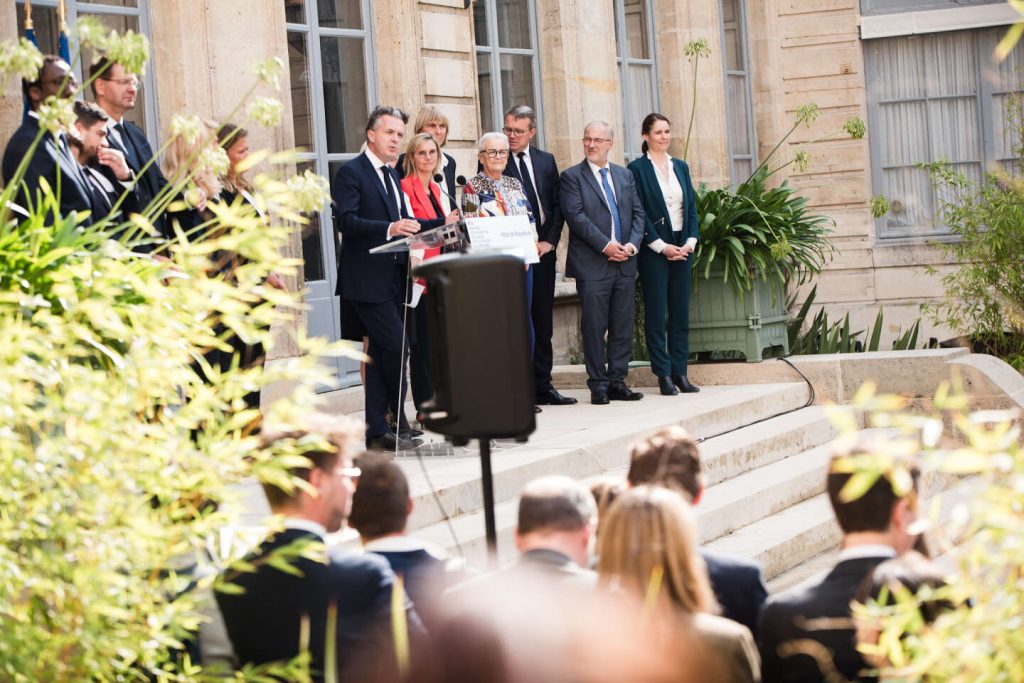Christophe Béchu, who was appointed on July 4, 2022, served as the Minister of Ecological Transition and Territorial Cohesion for over two years, longer than his predecessors under Emmanuel Macron. Béchu highlighted the importance of his tenure, stating that he would be the longest-serving ecology minister during Macron’s presidency, and emphasizing the need for long-term perspective in addressing environmental issues. During his time in office, Béchu was often caught between competing interests from the Elysée, Matignon, Bercy, and the Ministry of Agriculture. While initially unknown to key environmental stakeholders, Béchu is seen as a pragmatic individual open to dialogue but often faced challenges in resisting executive decisions that led to environmental setbacks, such as during recent agricultural crises.
Despite the challenges he faced, Béchu managed to stay in his position, earning praise for his willingness to listen and engage with various stakeholders. However, critics point out that environmental policy in France is largely dictated by the President, Prime Minister, and pressures from the Ministry of Finance (Bercy). Morgane Piederriere, a policy advocate at France Nature Environnement, noted that despite Béchu’s tenure, ecological decisions continue to be shaped by the executive branch rather than a dedicated focus on environmental concerns. This underscores the ongoing challenges facing environmental policy and the need for greater independence in decision-making.
Béchu inherited a significant portfolio when he was appointed, including the newly established Secretariat General for Ecological Planning (SGPE) at Matignon. This restructuring was part of Emmanuel Macron’s promise to implement comprehensive ecological planning and overhaul the government’s architecture to address environmental issues effectively. Given his background in local government and leadership in Horizons, Edouard Philippe’s party, Béchu was well-positioned to oversee a vast ministry that encompassed environmental matters, local governance, housing, and maritime affairs. His ministry’s focus was on daily ecological management and important initiatives such as water policy and the national climate change adaptation plan.
While the Secretary of Ecological Transition, Agnès Pannier-Runacher, primarily handled greenhouse gas emissions reduction efforts, Béchu’s focus was on the day-to-day management of ecological affairs and key initiatives like the third national climate change adaptation plan. However, Béchu did not introduce major legislation during his tenure and faced challenges on critical issues due to political developments. Despite being sidelined in some areas, his deep understanding of territorial dynamics and political nuances allowed him to navigate complex policy landscapes and engage with diverse stakeholders effectively. Béchu’s leadership was marked by a practical approach towards ecological challenges and a commitment to ensuring the resilience of France’s ecosystems against climate change impacts.
In conclusion, Christophe Béchu’s tenure as Minister of Ecological Transition and Territorial Cohesion was characterized by his longevity in a role notorious for high turnovers. While he was commended for his listening skills and willingness to engage, criticisms highlighted the broader structural challenges that impede meaningful ecological policy change. As France grapples with pressing environmental issues, including climate change adaptation and ecological planning, there is a growing recognition of the need for greater independence and long-term vision in addressing these challenges. Christophe Béchu’s legacy reflects the complexities and limitations of navigating environmental policy within a larger political context, underscoring the ongoing need for dedicated and impactful ecological leadership in France.


